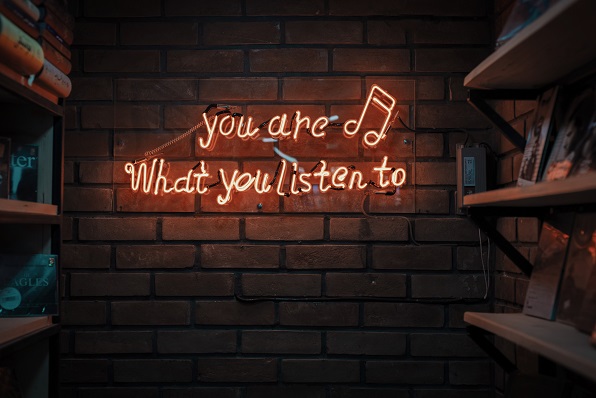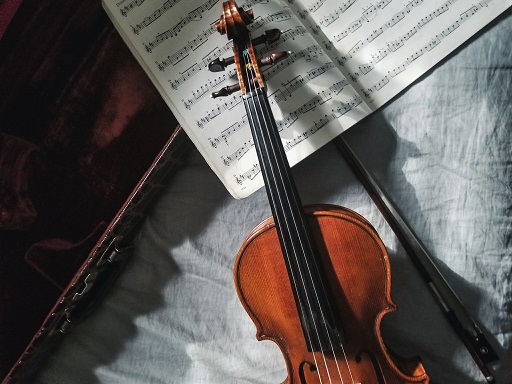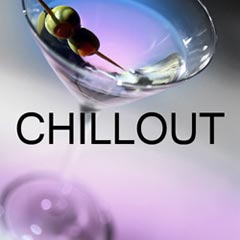Therapy
Music can help people who suffer and who can hardly find a way to find relief from their life issues. Improvisation and singing, rhyme analysis, listening to music, these activities can move, stimulate and help our mind and our passions. Music therapy can be the answer to treat psychosomatic illnesses and mental disorders, and it can be a wonderful tool to find a way out and a light in dark moments. In this playlist, you will find some lounge, chill-out, jazz and trip-hop songs that can help your day become wonderful. A relaxed, comfortable environment. Music therapy is a popular and growing form of therapy, in which music simply reaps therapeutic benefits to restore, maintain, and improve wellbeing. Music therapists use music as a means of expression to create opportunities for people of all ages and backgrounds to receive help with physical, emotional and mental health challenges. Research suggests that music can have powerful positive effects on motivation, concentration, empathy an
The Healing Power of Music: How Therapy Music Relieves Life Issues
Music has always been a source of inspiration and relaxation for people all around the world. It's no secret that music can influence our emotions and boost our moods. The healing power of music is now being explored in the form of therapy music to help people who suffer from psychosomatic illnesses, mental disorders, and other life issues. In this blog post, we'll be analyzing how music can provide relief and promote wellbeing through improvisation and singing, rhyme analysis, listening to music, and music therapy. Get ready to learn about a wonderful tool that can help you through your most difficult moments.
Improvisation and Singing: When it comes to relieving stress and anxiety, singing can be therapeutic. Singing allows us to express ourselves vocally and emotionally. It creates a sense of calm and well-being that can calm the mind and promote healing. Improvisation and singing allow us to let go of any negative feelings and become present in the moment. The creative process can be quite liberating and allows the body and mind to relax. By singing, we activate endorphins that help us feel more positive and happy.
Rhyme Analysis: Rhyme analysis is another method used in music therapy. Music therapists analyze the lyrics and rhythm of a song to understand its therapeutic potential. Analyzing music can help identify the emotions and obstacles that a person may be facing in their life. Through this process, people can gain insights into their behavior and find ways to cope with it. The rhythmic beat and music can be quite soothing and can act as a stress reliever as well.
Listening to Music: Listening to music has been shown to have a positive impact on mental health. Music can reduce depression and anxiety, and promote relaxation. Listening to your favorite music can be quite beneficial for your well-being, especially in times of stress and despair. In addition, music can be used as a means to distract oneself from negative thoughts and feelings.
Music Therapy: Music therapy is a form of therapy that uses music to restore, maintain, and improve the physical, emotional, and mental well-being of individuals. Music therapists use music to create an environment where patients can relax and express themselves. Music therapy can be used to treat depression, anxiety, and other forms of mental illnesses. By providing a calming atmosphere, therapy music can ease the minds of patients who are struggling. Music therapy can also be used to support the grieving process and provide comfort in times of need.
Music therapy has shown to be an effective tool to treat psychosomatic illnesses, mental disorders, and other life issues. Improvisation and singing, rhyme analysis, listening to music, and music therapy can all provide relief and promote well-being through music. Music has the ability to create opportunities for expression and connection that can be life-changing for some individuals. Music has become a popular and growing form of therapy, and it's something that everyone should consider using as part of their mental and physical health management routine. So, turn on some therapy music and let it soothe your stresses away!
ON AIR - PROGRAMMING
How Music Can Help Us to Take on the World

Photo by Mohammad Metri / The Unsplash License
Music can be a transformative experience for both the musician and the listener. After all, the right tune can help us to take on the world and believe that anything is possible. All in the span of a few minutes, it can move us to sadness or joy, and figuratively transport us to another place or time. It can elevate our everyday life and aid us in reaching our goals.
But it doesn't stop there: There are numerous benefits to listening to music. For example, some poker players claim that it helps them to focus and get in the zone during long events, while others listen to music to help them relax during stressful situations. For Poker pro Liv Boeree, the right music can help her to assert herself at the table. Boeree has been quoted as saying: "It's defined who I am up to this point. I listen to metal when playing poker. It energizes me and makes me aggressive." Boeree has taken her love of music a step further too, by playing guitar in her free time to unwin:
Source Youtube
This same approach of using music to get in the zone works for athletes as well. For runners, the right track can help to Source enhance their performance. For instance, runners who listen to an upbeat song tend to run faster than runners who listen to slow songs or neglect listening to music completely. Listening to music during training can also help athletes to push themselves in a positive way to prepare for a game. It can be just the motivation they need to workout longer, harder, and better. But it can also make all-day training much more pleasurable, which isn't something to be taken lightly when someone makes his living as an athlete.
To expand upon music's stress-reducing abilities, listening to classical music can help to calm both our bodies and minds. It has even been shown to have a calming effect on dogs, helping them to relax when they're agitated or scared. Even if you're not a huge fan of classical music, try giving it a chance the next time you're looking to unwind. It has been shown to lower blood pressure, reduce a rapid heart rate, and minimize stress hormones. Music can also be a great tool to use while meditating because it can disrupt negative thoughts, improve mindfulness, and help us to focus on having a more calming experience. And because of classical music's stress-reducing capabilities, it can also help us to sleep better.

Photo by Jordan Mixson / The Unsplash License
Long-term musical training and participation is also believed to improve academic performance, particularly in young students. Over the years, there have been a number of studies seeking to prove a correlation between musical training and academic performance, but few that have focused on the long-term benefits of musical education. The results of one particular study - which followed 147 young children for two and a half years - showed that students with long-term musical education tended to experience improved cognitive functioning, specifically in regard to planning, attention, memory, and initiation. This was believed to carry over into other areas of their life, such as their academic performance outside of musical education.

Photo by sgcreative / The Unsplash License
These are just some of the ways music can aid us day to day. If you've ever doubted the power of music...clearly you should be listening to more music. Maybe you just need to find a new playlist that speaks to you, or find a new way to incorporate music into your life. Set your alarms to play your favourite songs when you wake up, listen to music on your commute, hum a song while doing chores, finally purchase those concert tickets you've been eyeing, or take up a new instrument. Let your favourite songs seep into every area of your life and transform your day in a positive manner. You might not truly believe that music can help you to take on the world until you experience that very feeling. So, what's stopping you? Go discover that feeling.
Music Therapy Ideas - How Art and Music Can Help You Win Your Battle With Addiction
Have you recently entered into recovery for drug or alcohol addiction?
Making the decision to seek help for your addiction is a big step, so it's important to find ways to stick to your treatment plan. That's why more and more rehabilitation programs are beginning to realize the benefits of including creative therapies, such as art and music, in their overall treatment plans. Wondering how these activities could help you? Read on to find out more.
Having Hobbies Can Boost Your Recovery
Addiction can take up a lot of your time. From finding your next fix to getting high to hiding your addiction, you may have been pretty busy before you entered into recovery. This downtime, and the resulting boredom , can be a big trigger for former addicts and cause them to start using again. Hobbies offer a constructive, often creative, way to fill this open time and avoid boredom. Picking up a paint brush, strumming a guitar or working on some writing can keep your mind occupied and your time filled with activity, helping you avoid relapses that can set your recovery back.
Playing Music Can Make You Smile
Whether it's a playlist or your own fingers on a piano, studies have shown that music has the power to impact your mood, it is an activity of music therapy. Addiction recovery is filled with ups and downs, but music can help you have better control over your feelings, or at least over the way you express those feelings . Whether you need to feel happy, sad or motivated, there are songs to help you work through your emotions. Customize different playlists to fit every mood or learn to play your go-to songs on your own. Learning to play an instrument can be beneficial for your mind, body and soul, so use the open time you have in rehab to develop your musical talents.
Painting and Drawing Help With Stress
Stress is just as much a trigger as boredom and managing yours is necessary during recovery.
It may surprise you to know that a stroke of a paintbrush could be just what you need to decompress.
While most hobbies can help with stress,
creative activities
seem to be some of the best ways to relax after a difficult day. Many recovering addicts find that
drawing or painting
helps them release some of their stress and express their emotions in a healthy way. Picking up a pencil could help you
prevail against your own drug or alcohol addiction.
Creating a Workspace Can Encourage Your Hobbies
Having your own space to practice your hobby will keep you inspired. HomeAdvisor
notes, "Everyone deserves to have their own space for their passion project,
be it a crafting station or simply a place to journal. Look around your home
with a creative eye, and you'll realize that much of what you need to create
your ideal hobby workshop is already nearby and can be easily converted."
A table, a chair and some good lighting can help you get started. To encourage
creativity and calm, think about adding some inspiring decor, perhaps a custom pet portrait ,
and use scents
to keep your mind open while you practice your hobbies.
Adding Creative Therapies to Your Recovery Can Be Simple
Working through recovery means your schedule is likely filled with therapy, meetings and other traditional treatments. Use the time in between to work on your music, art or writing. Be sure to set aside a few minutes each day to decompress through one of your chosen activities. If you need some inspiration or help staying on track, think about enrolling in local classes or taking lessons online . You could sharpen your skills while setting aside dedicated time in your schedule to work on your hobbies. Interacting with other creative people in classes could also give you the social support needed to feel connected during recovery.
It takes a strong person to admit they need help and to begin treatment for an addiction. Recovery can be a long, difficult process. You need to find ways to deal with triggers and stress so you can stay strong during rehab. Combining creative therapies and hobbies with professional treatment could provide the focus you need during this important time.

Photo Credit: Pexels
Article written by Julie Morris
Visit her website







